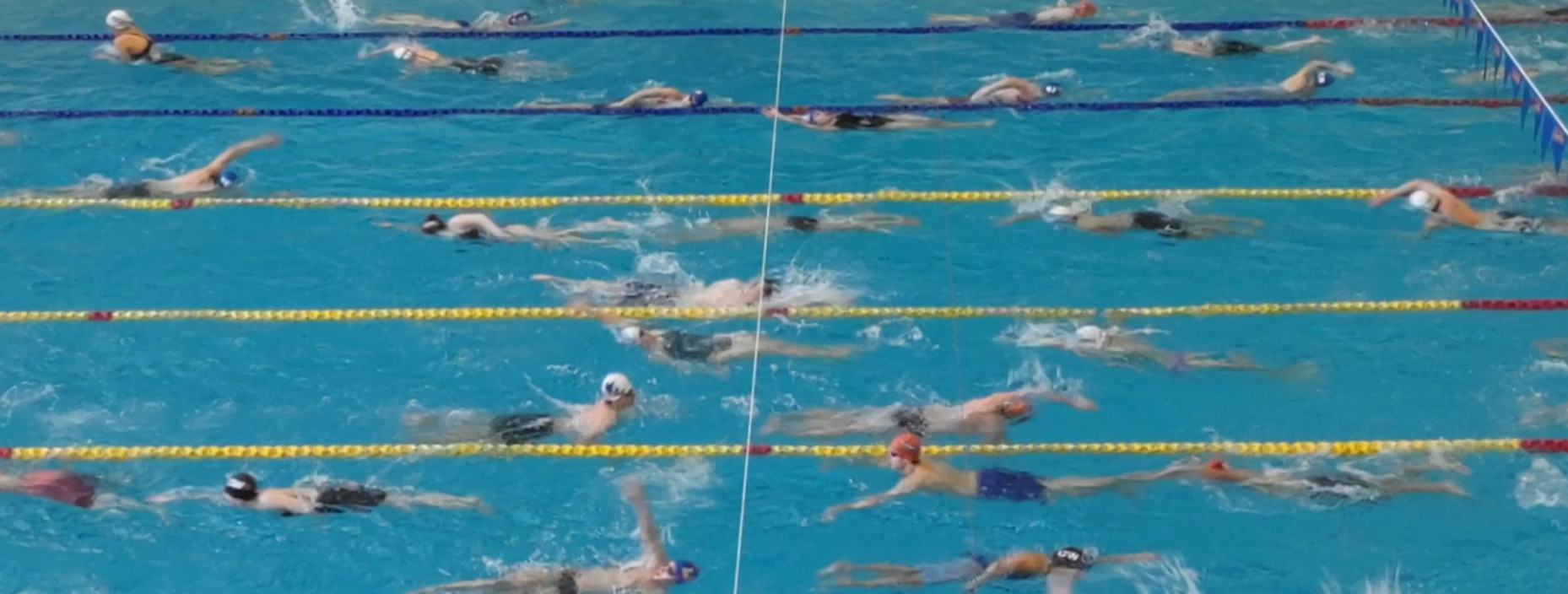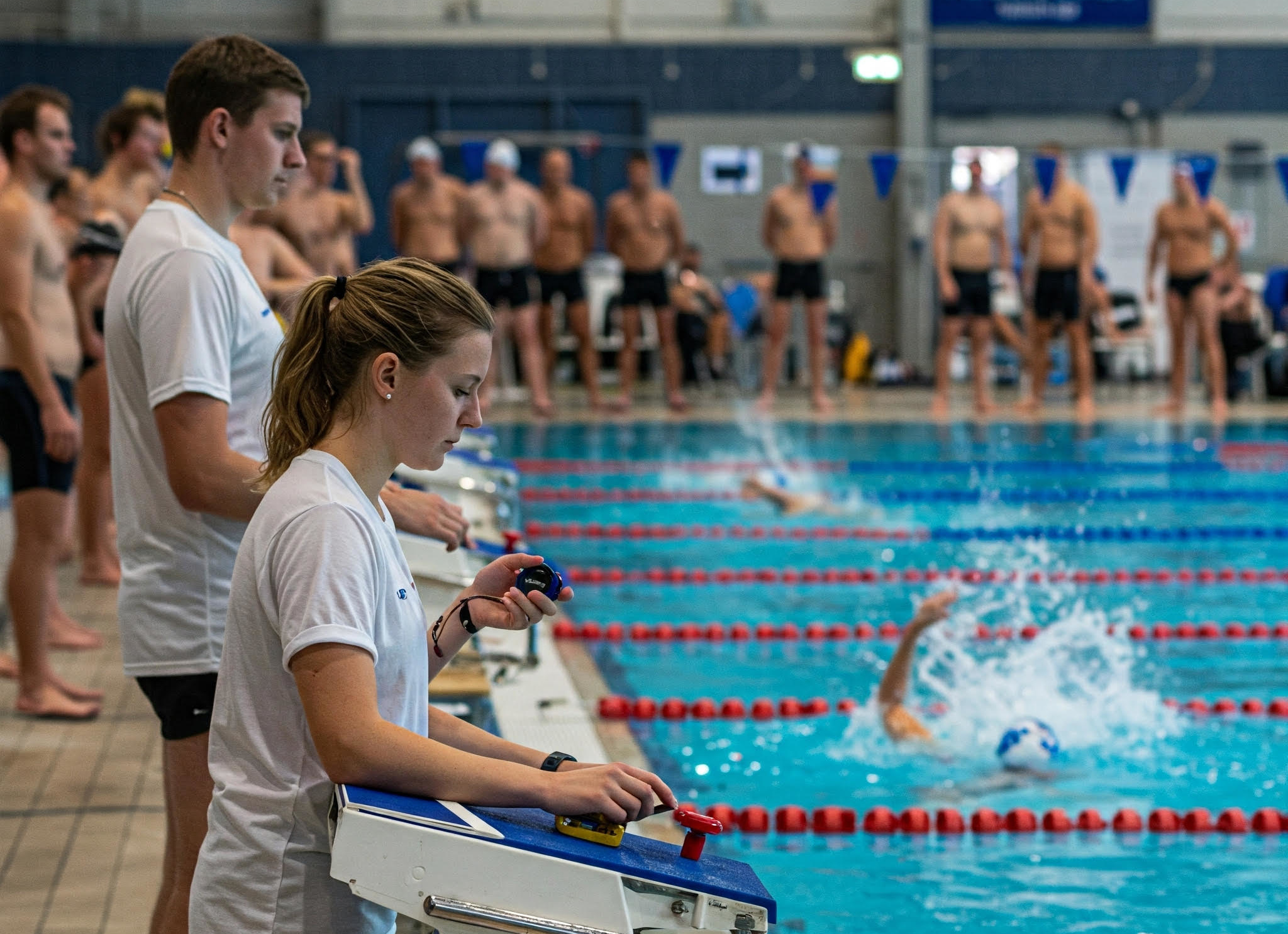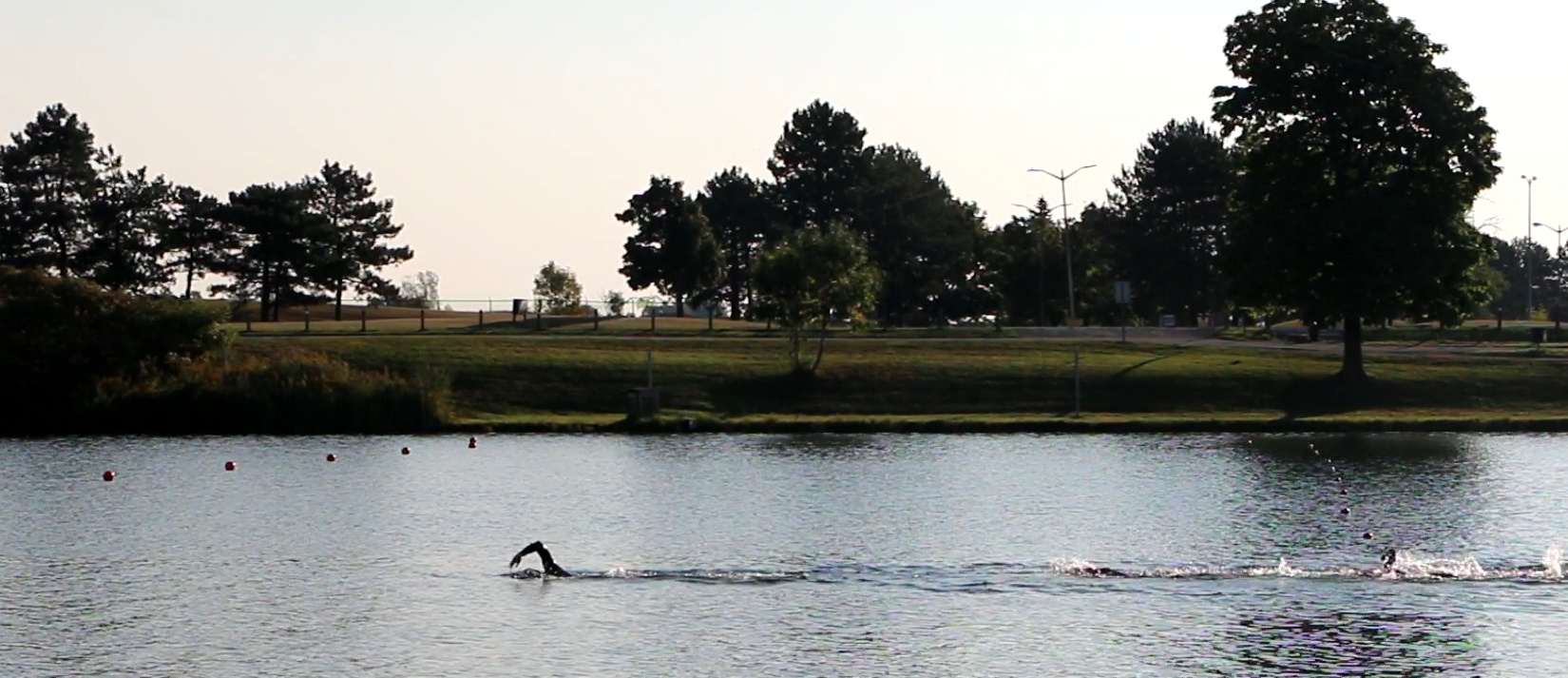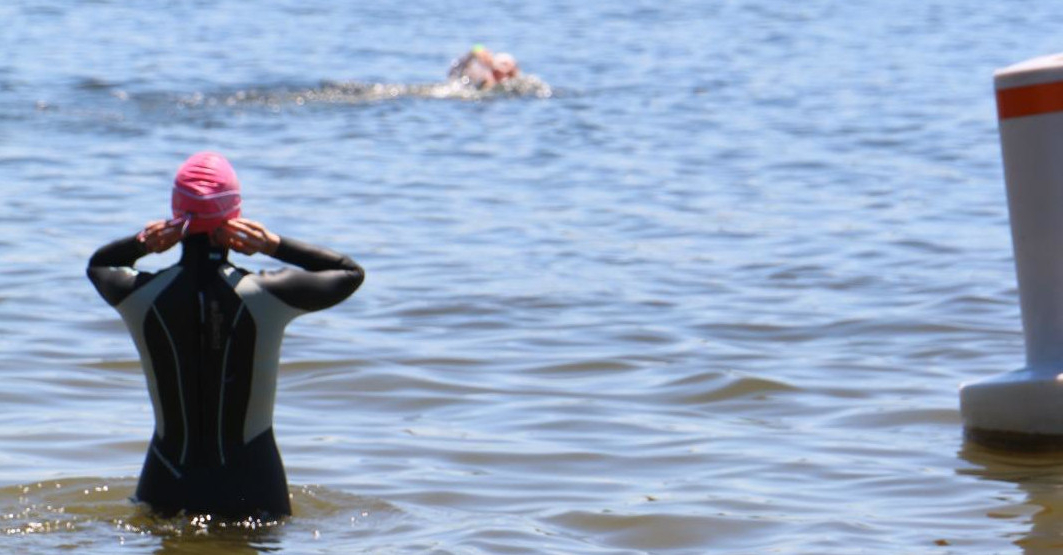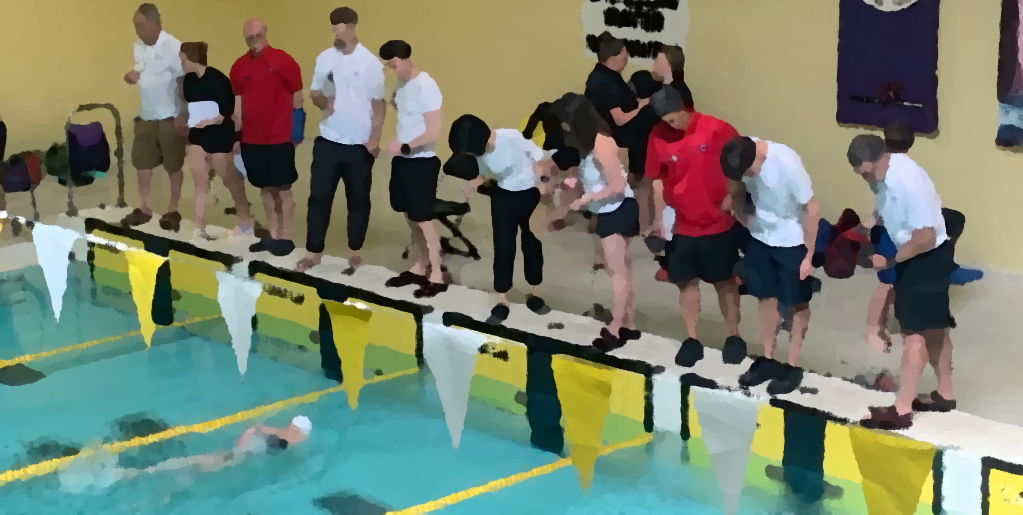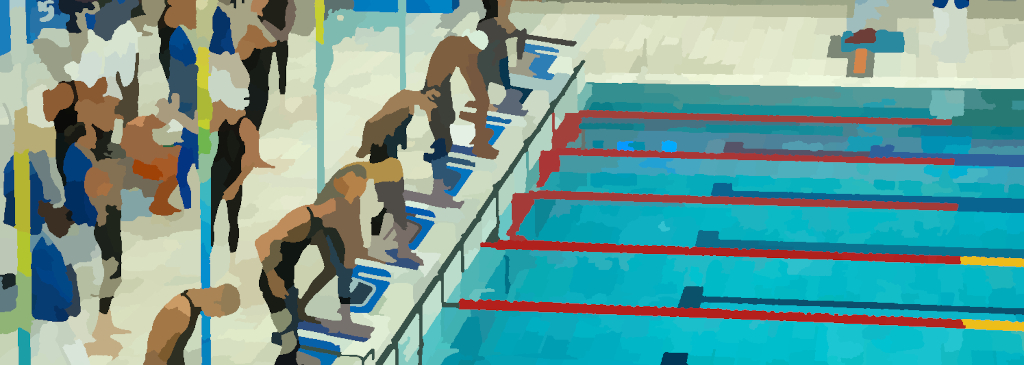1. Perfect your technique outside the pool
We don't have to tell you to perfect your swimming technique — your coach already does it. But we can tell you that your dryland sets also need to be perfect. The correct movements will strengthen the right muscles to improve your swimming efficiency.
2. Adapt to the new environment
The warm-up time is not just for warming up. It is an essential moment to get used to a different environment. The racing pool might be different from the pool you are used to. So, use the warm-up to spot the differences and adapt to them. For example:
- count the number of strokes after the flags.
- the ends of the dark line at the bottom may affect your turns, so practice some turns to calibrate the optimal distance.
- The diving blocks, including their height, might differ, so practice a few starts from the block until you feel comfortable.
3. Be tolerant of annoyances and focus on the task
One of the most annoying things in swimming is when the swimmer behind you keeps touching your toes. It happens a lot during a meet warm-up when there are too many swimmers in the pool at the same time. Unfortunately, it can affect the quality of your warm-up if you care about it. Listen: DO NOT EVER CARE ABOUT TOES TOUCHING! The swimmer behind you is responsible for passing if you are going slower. Stay focused and do precisely what you must to warm up properly and adapt to the new environment.
4. Learn how to read the scoreboard
Use the time you wait for your event to learn how to read the scoreboard. How fast can you identify your lane, position, and time? The fast pace of busy events can quickly switch heats on the scoreboard, so learn to read it fast.
5. Do not circle swim during your race
Circle swimming is for practice, where there is more than one swimmer per lane. During your race, you have a dedicated lane for yourself to stay on top of the dark line at the bottom of the pool. Take advantage of that! Remember: the shortest distance between two points is a straight line. So, don't swim more than you have to.
6. Ask your parents to become officials
When your parents learn the rules and roles of the sport, they can help make swim meets happen; look at your swim from a privileged angle; and keep an eye, from the galleries, on the officials during your races. It is rare, but they can help the coaches to appeal in case of unfair disqualification since it is not uncommon to see officials poorly positioned to judge. However, while you have the benefit of the doubt, that doesn't exempt you from rigorously following the rules of the sport.
7. Do not relax with your nutrition
Travelling abroad for a swim meet is not an excuse to relax with your nutrition, especially when you are close to reaching a goal. Fast food restaurants are designed to please you, with poor nutritional value. Find a good local supermarket and prepare food rich in carbohydrates with fibres before and during the races and rich in protein after the race. The food before the race replenishes your glycogen levels to sustain your effort for longer. A few microfibers in your muscles will tear apart during your race because of the extraordinary effort. So, you need extra protein intake to help your body replace those fibres quickly.
Takeaways
The more you race, the more experience you accumulate, but you can also count on the knowledge shared by others to build your competitive toolbox. By sharing our perspective, we hope to contribute to your attention to detail and drop a few seconds from your best times.
